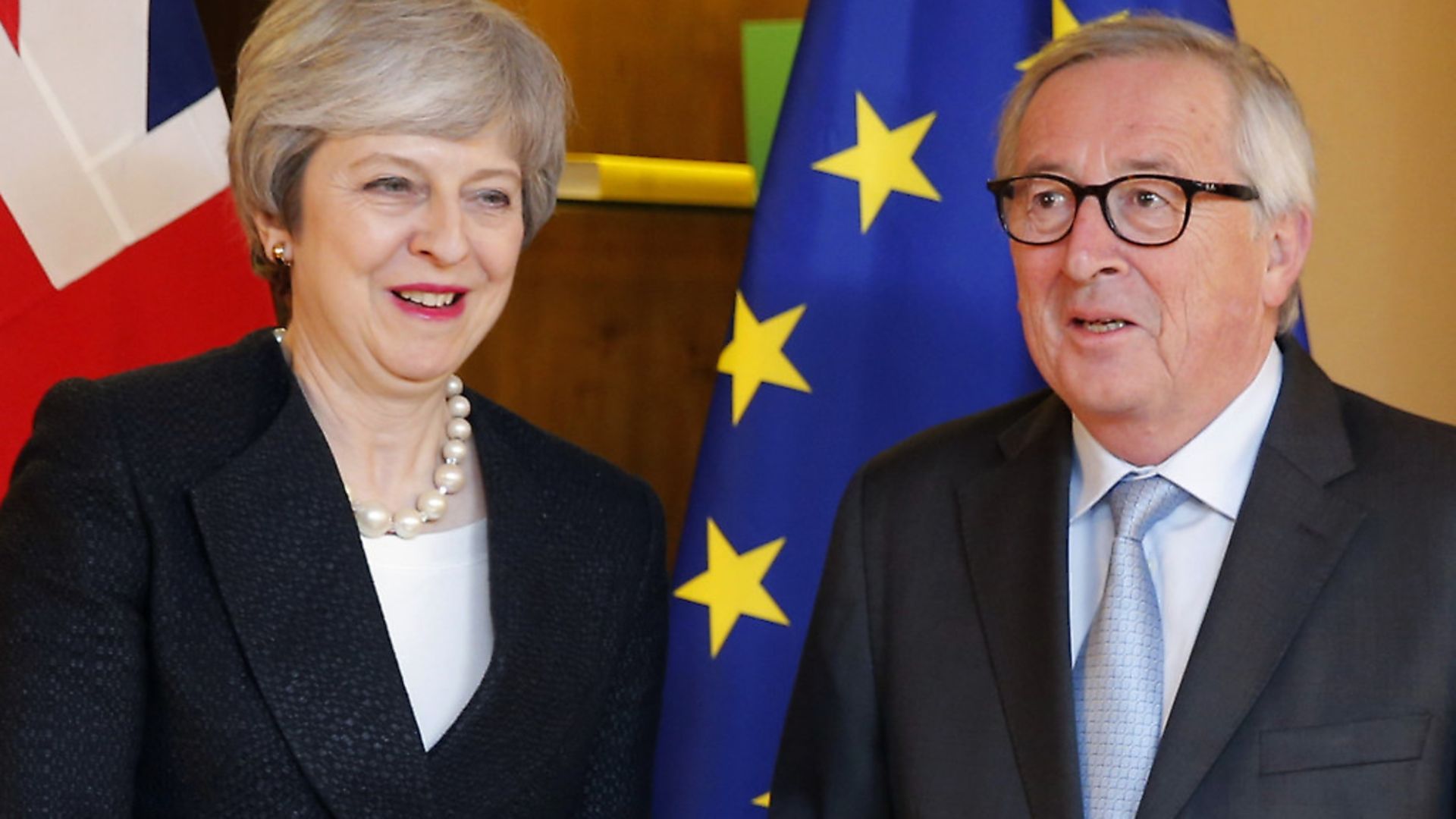
Three of Britain’s most senior experts in European and international law have declared that the measures announced in Strasbourg ‘do not come close’ to meeting the tests set for Theresa May by backbench critics of her Brexit deal.
In an 11-page legal opinion drawn up for the People’s Vote campaign, the lawyers say that what the prime minister claimed were ‘legal changes’ will have no material effect on an agreement which allows the backstop to remain in place indefinitely. ‘It is crystal clear that the measures do not alter the fundamental legal effect of the backstop, as previously and correctly explained by the attorney general,’ they conclude.
The legal opinion was drawn up by Lord (David) Anderson KBE QC, Jason Coppel QC and Sean Aughey. It will weigh heavily with any MPs who were serious in citing legal reasons for opposing the Brexit deal in January because – unlike Geoffrey Cox, the attorney general, whose expertise is in commercial law – all three are regarded as leading practitioners in the field of EU and international law.
They state that the measures announced do not come close to meeting the demands of Brexiteer MPs who have said they will oppose the deal unless there are ‘clearly worded, treaty level provisions which unambiguously override’ the backstop.
The legal opinion says: ‘The UK would not be allowed to end the backstop in the event that negotiations over its future relationship with the EU cannot be brought to a satisfactory conclusion – or provide the UK with a right to terminate the backstop at a time of its choosing, or indeed at any time, without the agreement of the EU.
‘The furthest they go is to reiterate the possibility that the backstop might be suspended in extreme circumstances of bad faith on the part of the EU which are highly unlikely to be demonstrated… That was only ever a very limited risk. The far greater risk of being held in the backstop indefinitely as a result of the failure of good faith negotiations remains unmitigated.’
It also casts doubt on the value of the UK’s unilateral declaration which suggests the backstop could be ended if negotiations with the EU failed. ‘Whether or not the UK’s understanding of the Withdrawal Agreement is correct will be a matter for the Court of Justice of the EU, which is likely to be sceptical not least because the UK’s declaration goes beyond the terms of the joint instrument,’ says the legal opinion.
MORE: What the newspapers say ahead of the Commons showdown
MORE: How MPs reacted to Theresa May’s latest Brexit announcement
MORE: Subscribe to The New European for £13 and get a FREE Bollocks to Brexit mug
Dominic Grieve QC MP, the former attorney general and a leading supporter of the People’s Vote campaign, said: ‘I have had the chance to look at the document produced last night and I’m quite clear in my mind it does not allow the UK to terminate the backstop in the event of as breakdown in negotiation; it does not allow the UK to terminate the backstop at a time of its own choosing. The advice issued today from Lord Anderson, Jason Coppel and Sean Aughey reinforces my view.
‘In parliament today I will continue to argue that the agreement does not bear any relationship to what we were offered in the last referendum of 2016. It is significantly different and therefore it should go back to the people – they have a right to vote on this and decide whether to go ahead.’
Warning: Illegal string offset 'link_id' in /mnt/storage/stage/www/wp-includes/bookmark.php on line 357
Notice: Trying to get property 'link_id' of non-object in /mnt/storage/stage/www/wp-includes/bookmark.php on line 37






